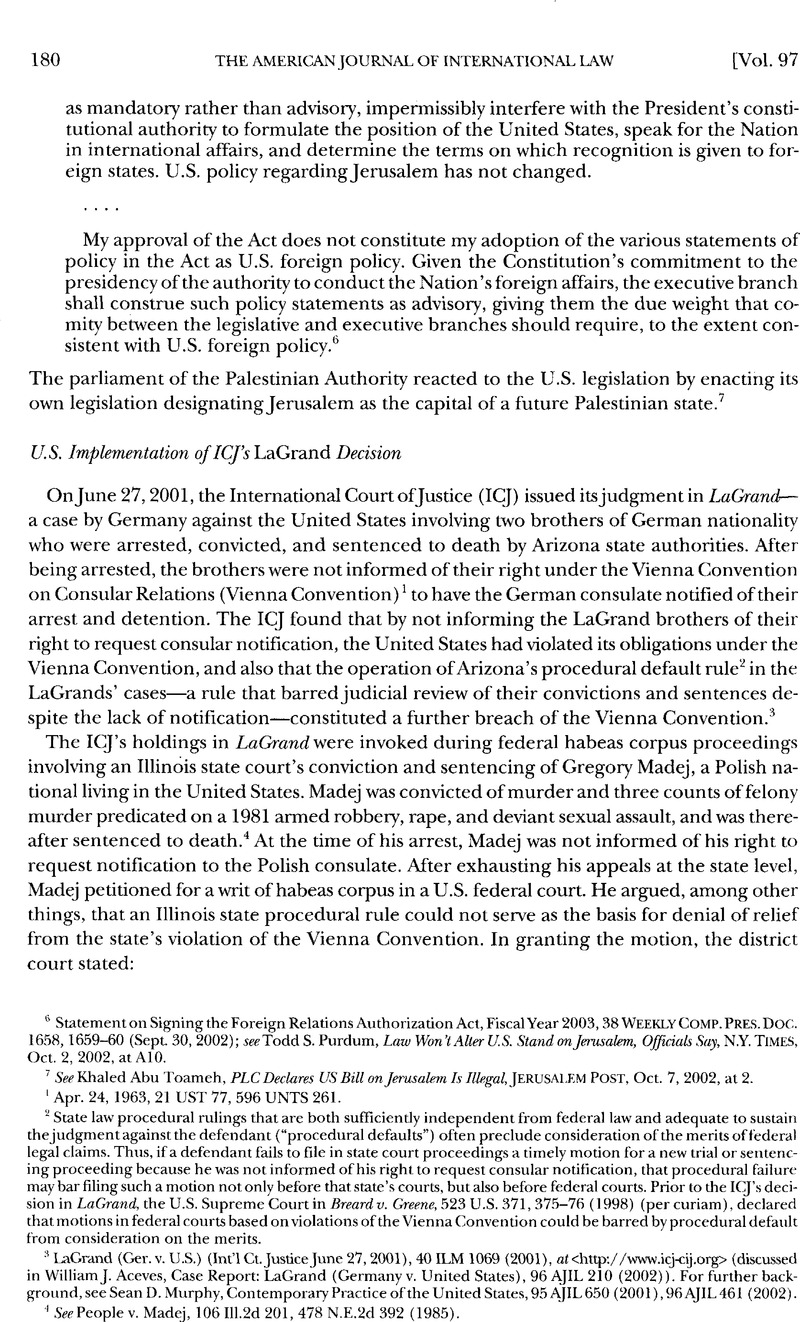No CrossRef data available.
Published online by Cambridge University Press: 10 March 2017

1 Apr. 24, 1963, 21 UST 77, 596 UNTS 261.
2 State law procedural rulings that are both sufficiently independent from federal law and adequate to sustain the judgment against the defendant (“procedural defaults”) often preclude consideration of the merits of federal legal claims. Thus, if a defendant fails to file in state court proceedings a timely motion for a new trial or sentencing proceeding because he was not informed of his right to request consular notification, that procedural failure may bar filing such a motion not only before that state’s courts, but also before federal courts. Prior to the ICJ’s decision in LaGrand, the U.S. Supreme Court in Breard v. Greene, 523 U.S. 371, 375-76 (1998) (per curiam), declared that motions in federal courts based on violations of the Vienna Convention could be barred by procedural default from consideration on the merits.
3 LaGrand (Ger. v. U.S.) (Int’l Ct. Justice June 27, 2001), 40 ILM 1069 (2001), at <http://www.icj-cij.org> (discussed in Aceves, William J., Case Report: LaGrand (Germany v. United States), 96 AJIL 210 (2002)CrossRefGoogle Scholar). For further background, see Murphy, Sean D., Contemporary Practice of the United States, 95 AJIL 650 (2001)Google Scholar, 96 AJIL 461 (2002).
4 See People v. Madej, 106 Ill.2d 201, 478 N.E.2d 392 (1985).
5 Madej v. Schomig, 223 F.Supp.2d 968, 978-79 (N.D. Ill. 2002).
6 Id. at 980.
7 Id.; see Madej v. Schomig, 2002 WL 31386480 (N.D. Ill. Oct. 22, 2002) (second motion to reconsider).